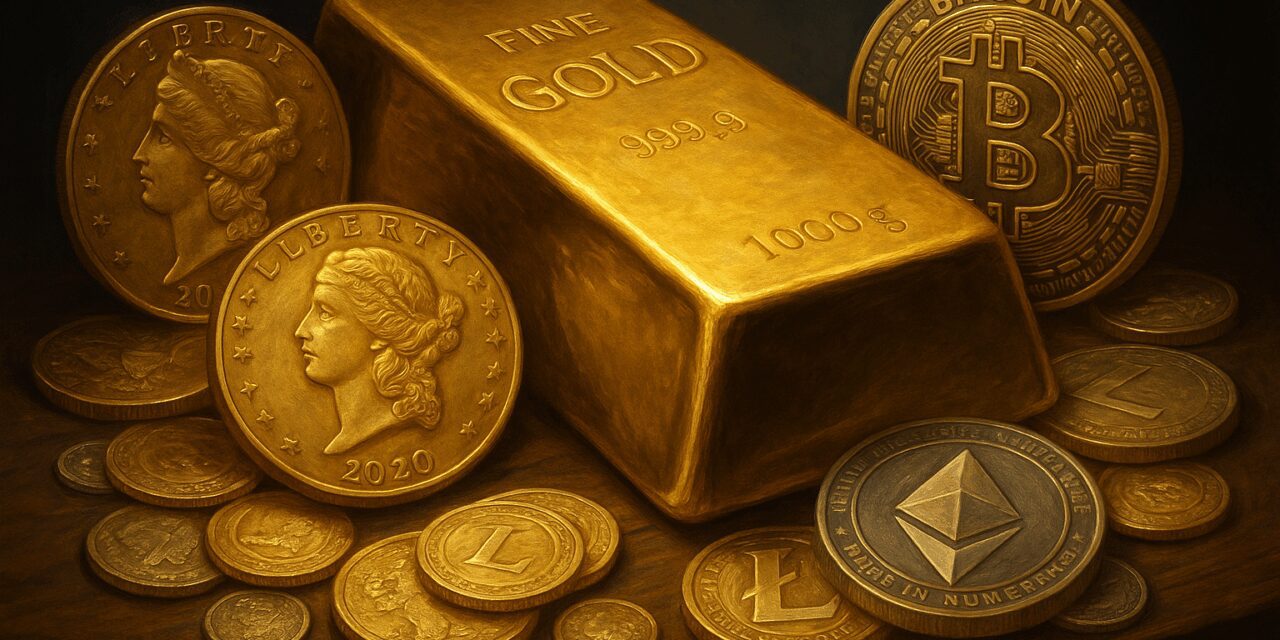In this third instalment (read parts one and two), Patrick Laure explores the strange new world in which states no longer wait for economic growth to create money, but instead create money in the hope of restoring growth…
The reality of money as a force of power, strength and freedom.
“Helicopter Money”
As early as 1969, Milton Friedman used this metaphor of the monetary helicopter. This metaphor explains that, on the one hand, the printer’s press runs slower than a helicopter’s rotor and, on the other hand, the printer’s press limits its distribution to the printing plant, whereas the helicopter’s blades distribute the banknotes issued in all directions to all countries and their economic agents.
In short, helicopter money is based on the creation of a direct link between economic agents and the central bank, in that the latter pays the former newly printed money so that they can consume or invest it. Helicopter money breaks down the traditional separation between monetary policy and fiscal policy.
It is primarily a means of giving money to consumers so that they can consume, buy cars, the latest iPhone, because if this money is not injected into the economy, manufacturers will no longer be able to sell what they produce.
Price inflation is actually a thing of the past, but that is another debate.
“Quantitative Easing “
The first modern war that states have had to finance is the Covid-19 crisis, or the economic and financial paradoxes raised by the Covid-19 crisis.
While in February 2021 in France, the debate on budgetary balance was raging, in the context of the revaluation of pensions, €15 billion was hotly debated in the National Assembly, 15 billion to grant an additional €800 per year to each pensioner, the Covid-19 crisis put an end to the parliamentary discussion.
While the debate on pension funding has been put on hold, €450 billion will instead be released to treat the sick, who, without any cynicism, are mainly elderly people and pensioners.
Thus, the French state will print money at a rate 30 times higher to save people; people for whom it did not wish to improve their living conditions at a cost 30 times lower.
Beyond this initial paradox, the most fundamental question remains that of the homo economicus that we are.
We are under house arrest and, for the most part, are being paid to do nothing. This also calls into question Rousseau’s social contract, as the useful function of man in society is being undermined.
All the state has to do is print money to keep the machine running and restart it at the first request.
The current debates in France, but not only there, on budgetary balance, which today leads to political imbalance, ultimately seem difficult for homo economicus to understand.
And even if, to paraphrase Audiard, ‘When we talk about money, above a certain amount, everyone listens,’ homo economicus listens, but in reality, we no longer understand anything.
The budget balance and 3% of GDP.
While the ‘Cook’ ratio, which amounts to 8% of the reserves of the State and banks, tends towards reasonable money creation based on existing assets, the 3% of GDP that must not be exceeded in the context of the budget deficit as a percentage of GDP is based on a different rationale.
As incredible as it may seem, and without any proselytism, the figure of 3 was decided and adopted by François Mitterrand and Helmut Kohl in 1984, when it was necessary to set a limit within the framework of the monetary policy of each European state, under the control and regulation of the ECB, 3 being the number of the trilogy.
This other reasoning (unlike the Cook ratio) is based on a country’s ‘average’ economic growth. This average growth allows countries that spend more than they earn to cope with their deficits through GDP growth.
Covid-19 and other circumstances mean that our countries are currently experiencing budget deficits of more than 5% of their GDP, leading to parliamentary debates on the annual state budget that no one really understands.
These various misunderstandings indirectly play into the hands of cryptocurrency. Because unconsciously, it fuels the hope for a currency other than that of the state.
Patrick LAURE
Secrétaire Particulier
+33 6 35 45 27 02
laurepatrick@wanadoo.fr
**The information provided in this article is for general informational purposes only and does not constitute legal advice. It is not intended to create an attorney-client relationship. Laws and regulations vary by jurisdiction and may change over time. Readers should consult a qualified legal professional for advice specific to their situation. The author and publisher are not responsible for any actions taken based on this information.

